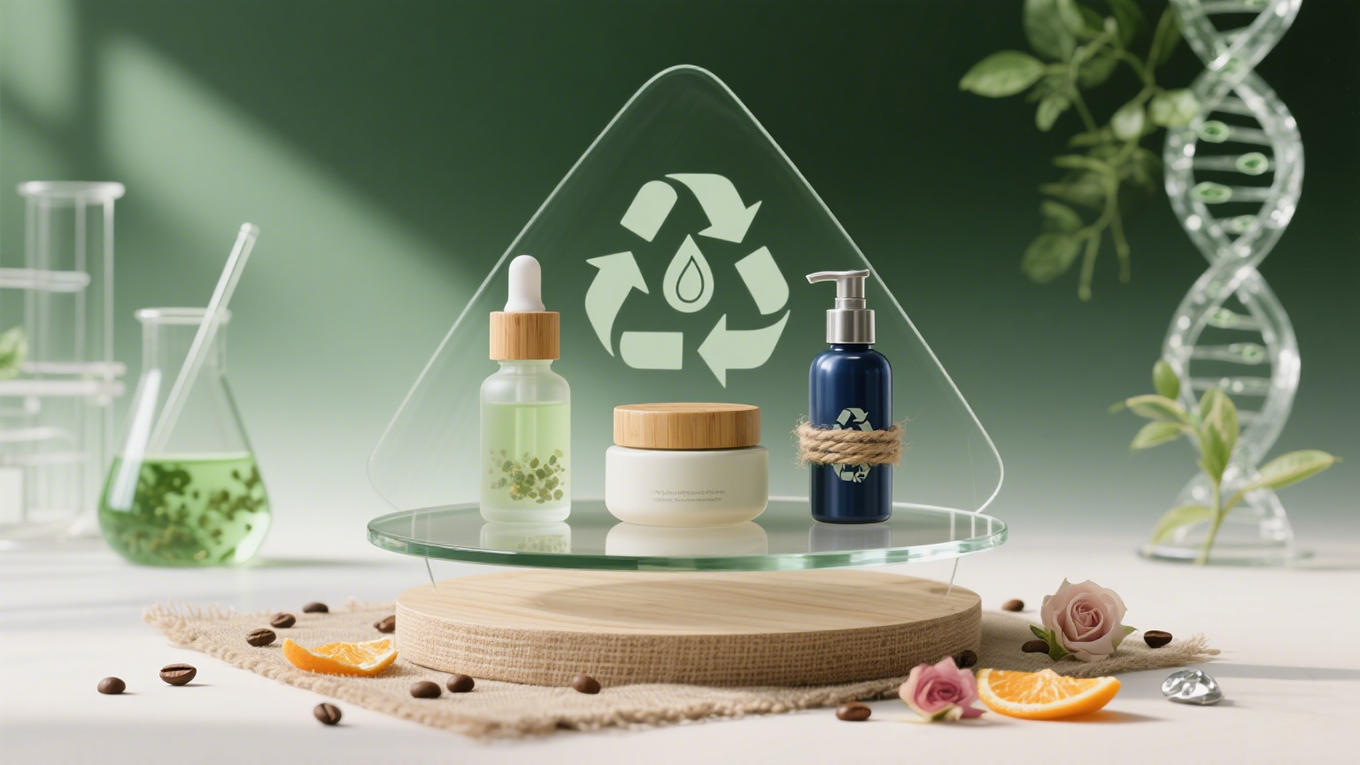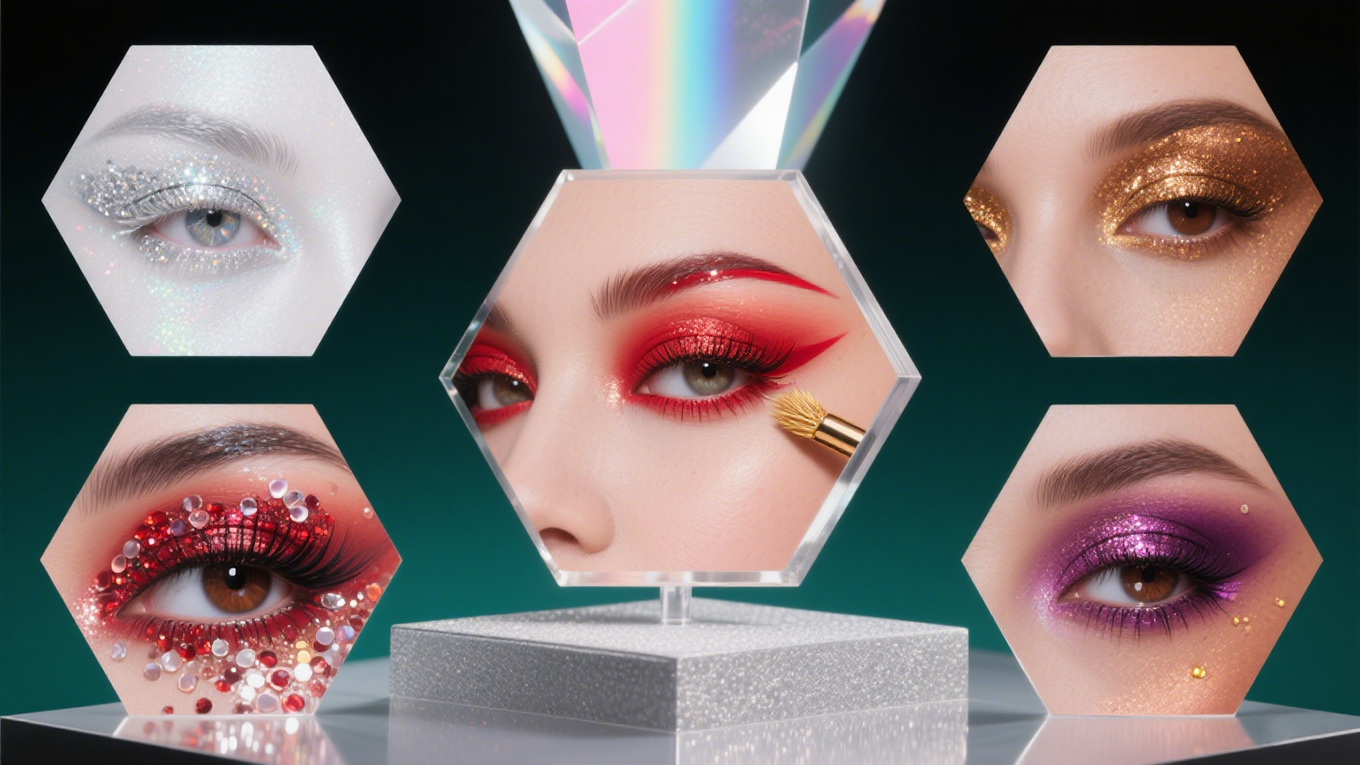Choosing the right eyeshadow formulation is key to delivering an eye makeup experience that resonates with your customers. Whether they prefer powders, creams, sticks, liquids, gels, or loose pigments, each texture offers a unique blend of pigment payoff, wear quality, and application ease. This guide will help you align eyeshadow formulas with consumer needs—whether that’s long-lasting performance, blending ease, or bold finish.
Understanding Popular Eyeshadow Formulations
Pressed Powder Eyeshadow
Pressed powders are the most familiar form—pigments pressed into pans, widely used in palettes. They typically utilize bases such as talc and mica, offering smooth texture, easy layering, and finishes ranging from matte to shimmer.Ideal for customers seeking versatile, on-the-go eyeshadow that blends effortlessly.
Cream Eyeshadow
Cream shadows deliver vibrant payoff and seamless glide. Packaged in pots, tubes, or sticks, they blend beautifully and work well as standalone shades or as bases. Priming oily lids is recommended to prevent creasing.These formulas cater to users who value quick, emotive application with high pigmentation.
Liquid Eyeshadow
Liquid formulations are formulated for high-impact color and long wear, often setting quickly into metallic or soft-matte finishes.Perfect for bold, statement looks and wearers prioritizing longevity and intensity.
Gel Eyeshadow
Gel shadows combine the creamy nature of liquid with blendability of powder, offering a modern, smooth finish.They’re ideal for trend-forward users seeking an innovative formula.
Stick Eyeshadow
Stick—or crayon—formulas mimic creams but excel in portability and precision.Great for shoppers who want a quick swipe-and-blend solution with minimal tools.
Baked Eyeshadow & Loose Pigments
- Baked Shadows: Hybrid formulas that provide the blendability of cream, the finish of powder, and can be used dry or with water for enhanced vibrancy.
- Loose Pigments: Finely milled powders known for intense color and dramatic effects—favored by professionals.
Key Considerations in Formula Selection
-
Texture & Application
- Powders blend beautifully with brushes.
- Creams and sticks glide effortlessly with minimal effort.
- Liquids deliver intense results when applied skillfully.
-
Pigment Intensity & Finish
- Liquids, gels, and loose pigments offer the most vivid payoff.
- Creams provide creamy depth that layers well.
- Powders offer a balanced range from subtle to dramatic.
-
Longevity & Wear
- Liquids and gels often boast longer staying power.
- Powders excel when layered.
- Creams perform best with primer support.
-
Ingredients & Base Materials
- Talc and mica form smooth, reliable bases.
- Binders like zinc or silicone help with adhesion.
- Slip agents such as silica ensure glide, while preservatives maintain product integrity.
-
Target Market Fit
- Travelers or beginners may favor sticks or creams.
- Professional or artistic users may gravitate toward loose pigments.
- Users seeking no-fuss, all-day wear may prefer liquid or gel textures.
Crafting Your Range With Varied Formulations
To meet diverse needs, consider offering:
- A multi-finish pressed powder palette (matte + shimmer).
- A cream-to-powder stick—easy application with a blended finish.
- A long-wear liquid shadow, ideally in met or satin finishes.
- A gel shadow with a modern finish for trend-conscious users.
- A dramatic loose pigment/shimmer pot for editorial looks.
By pairing formulas with user lifestyles, you ensure both satisfaction and innovation.
The success of your eyeshadow line hinges on selecting formulas that combine texture, performance, and user preference. Whether it’s blends that glide, pigments that pop, or formulas that last all day—aligning eyeshadow types to market needs elevates both product and brand experience.



